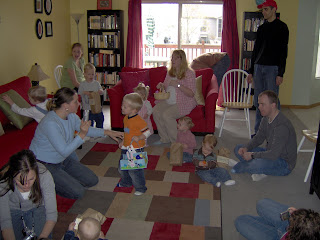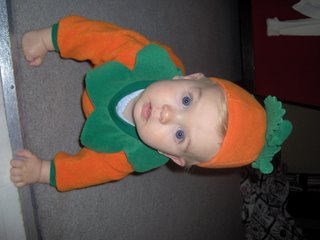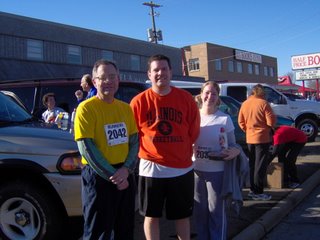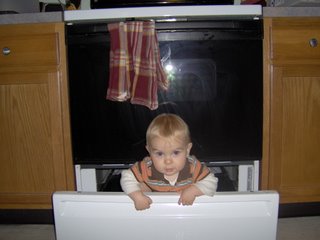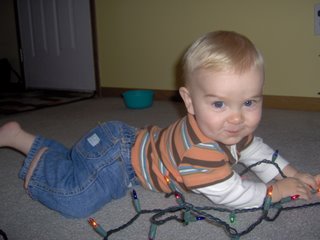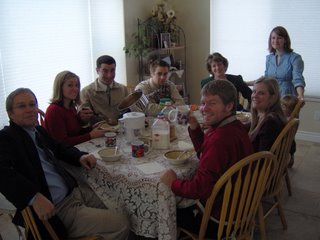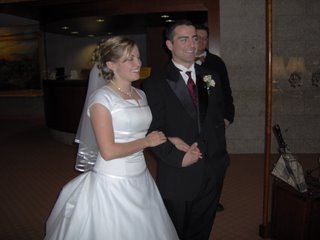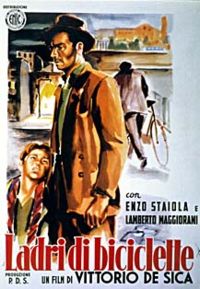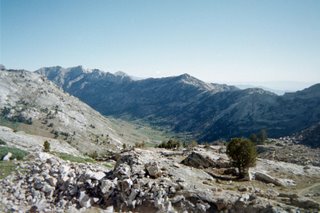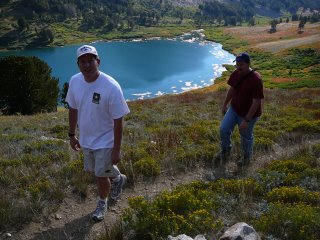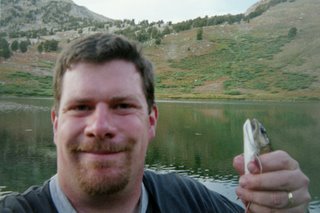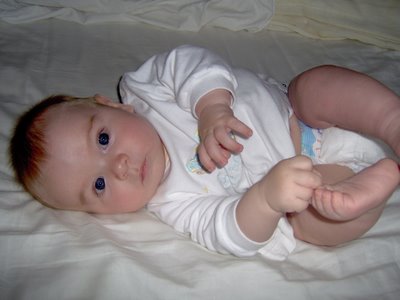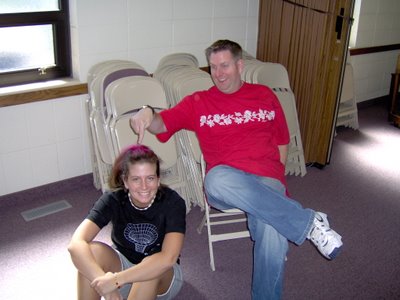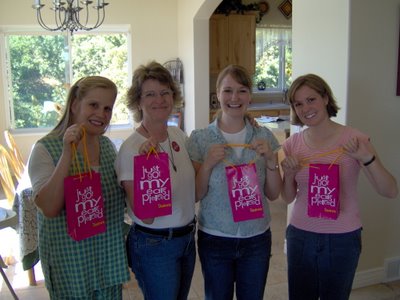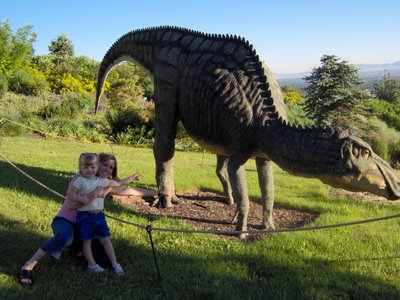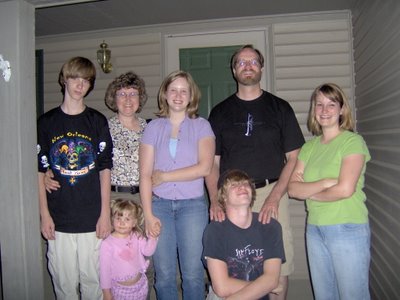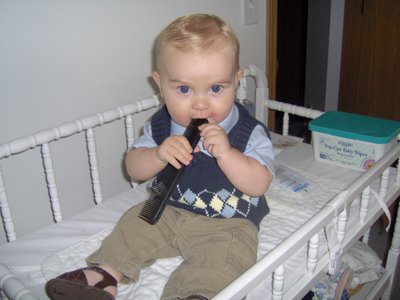It was a beautiful morning in Columbus today. Just like it was in Champaign five years ago. Just like it was in New York City five years ago.
I had gone through my normal morning routine as a graduate student, rolling out of bed around 8:30 or so, and arriving at campus to attend the lecture portion of the "Introduction to Mythology" course where I was serving as a TA. It was then that I realized that something had gone terribly wrong that day. Attendence was unusually sparse, and the instructor of the course called for a moment of silence for "those who were buried in the rubble and those who were trying to save them." He didn't explain what had happened, assuming everybody already knew. I hadn't heard anything. I went to my computer after class and looked up the NY Times webpage. Information was sparse. It had a simple title: "Airplances crash into Twin Towers; Both Buildings Collapse." I couldn't believe what I was reading. I thought it was a hoax.
The rest of the day was spent in front of the television in the student union and at home. I remember a sucession of images, each more sad than the last. Images of people falling. Images of people hanging out of windows. Images of panic. And, later, images of people desperately searching for loved ones. Images of walls full of photos of the dead and missing. I remember particuarly the images of a young woman, not much older than a teenager, holding a picture of her mother and begging the television audience (begging me on my sofa in Champaign!) to give her information, any information, about her mother -- a mother of several small children, the young woman's siblings. It was then that I finally lost it, drowned in sea of such images.
The day was peppered with small, memorable conversations, as people tried to understand what was happening and why. I remember talking with my advisor about the events of the day. He said simply that he was afraid -- afraid of what had happened and afraid [prophetically] of what would come after.
I did not know anyone who was killed on September 11. But that day changed me, perhaps more than any other single day of my life. More than any other day, that day told me that all was not well in the world. I didn't know who to blame, and I still don't. Not entirely. I know to blame hate, and fear, and ignorance. I know to blame that part of human nature that makes us want to think that we, and only we, have all the right answers. I know to blame that part of us who thinks we can all solve our problems through force, intimidation, and violence. I know to blame that part of us that wants to swagger and to have our enemies "bring it on." But to blame these things is simply to blame human nature, or a part of human nature -- that hateful part of human nature of which we are all comprised and from which, it seem, we are doomed to never escape.
September 11 was the day my professional life became trivial. Before that time, I was busy writing papers on Heidegger, the nature of metaphor, and the finer points of philosophical debates in epistemology. After that time, such pursuits lost much of their meaning. Who cares about such things when there are mothers being burned alive? When soldiers are deploying? When children await parents who will never come home? I couldn't muster any motivation to care about my studies in the days and weeks after the attacks. And since that time, I have never escaped the doubts that my life -- the life of comtemplation, teaching, and writing -- doesn't matter much. In the world of tough guys that was introduced on 9/11, people like me don't matter much.
I remember walking around the afternoon of September 11th. Every church on campus had its door open. I walked into the Episcopal church near the main library. The priest was busy offering prayers and a handful of people were kneeling. I listened to the prayers of another religion, but felt that it was also my religion. I remember seeing the long lines of people, ready to give blood, and I felt as if we were all really of the same blood. I felt ready to do whatever it took to solve the problems we faced.
But, then, it seems we couldn't find an answer that fully satisfied our national psyche. First came the war in Afghanistan. Then came the war in Iraq -- a war, unfortunately, that began the week my dear daughter Nora was born. Both wars now continue, with things getting worse everyday. Thousands upon thousands of more people have been killed. The hatred that was so clearly manifest by 19 highjackers has spread like a wildfire. Images of death and suffering have grown. The images of 9/11 have been replaced by images that are equally powerful. A young widow of an American solider, killed without meeting his daughter. Images of dead children being pulled out of buildings bombed by American aircraft. And the image below, the most recent image that touched me, and almost made me lose it.
I don't know much about this photo. There sits a prisoner, a father it seems. Perhaps he is a terrorist; perhaps just an innocent man caught up in one of our wild midnight raids. He sits in the desert with a black bag over his head and tries to comfort his obviously exhausted and probably terrified son. This is the fallout of 9/11. How can we make the world better for this boy? How can we make the world better for the girl on 9/11 with the missing mother? I wish I knew. 9/11 for me opened a flood of questions I have never fully answered.

Bryan

